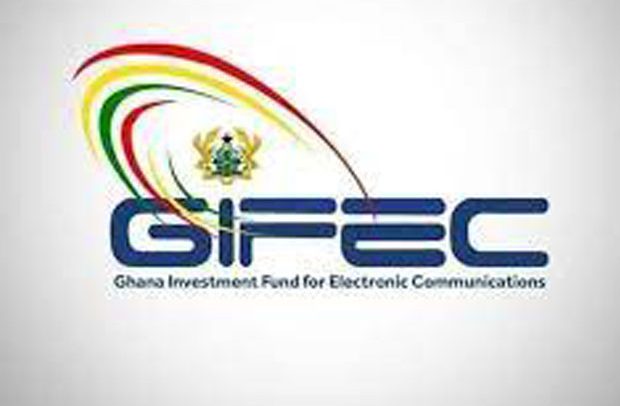The Ghana Investment Fund for Electronic Communications (GIFEC) has made substantial inroads in meeting its mandates, one being ensuring rural telephony in the country.
With the construction of 1,010 sites across the country, the previous trend of people climbing trees to ensure they receive signals loud and clear has become a thing of the past by and large.
During an engagement with editors recently, the CEO of GIFEC, Prince Ofosu Sefah, said that 569 sites on Air, Project Acceptance Test (PAT) for 1,000 sites and Core Network (Accra & Kumasi) were about 75% complete and rectification of identified snags ongoing, so much progress has been made in the realisation of the country’s digitisation dream.
Additionally, he said that 1,250 sites have been acquired, with 250 additional sites being acquired, a total of 1,510 sites are in the pipeline.
To address backhauling issues, he told his guests that “several efforts have been undertaken, including satellite technology, extensive research on TV whitespace technology.”
Negotiations with TowerCos, he went on, have been completed and contract ready for execution, as have negotiation on Interconnection Rates completed.
Cyberlabs for schools, especially in relation to the Girls in ICT Programme, in select regions with computers and accessories, including printers and projectors, is another feat chalked by GIFEC, the CEO pointed out, adding that “E-assessment in over 120 schools in select regions have been conducted.”
With 183 Cyberlab maintenance under the School Connectivity Project conducted and 1,500 computers in multiple regions, including Greater Accra, Eastern, Ashanti, Volta, Oti, Central, Western, Ahafo, Bono, Bono East, and Northeast regions provided, a major achievement has been made in making this modern technology in the remotest part of the country.
Digital Transformation Centres are in place and giving birth to training for 17,000 individuals since 2021, including 7,185 in 2023, he narrated.
Continuing, he said that the project was expanded last year to benefit 20,000 individuals, with 3,000 left to be trained this year.
Thirty Coding Clubs have been established with 1,216 club members and a total of 209 trainers trained, he added.
The training of trainers under the Introduction to Computer Basics for the Visually Impaired (ICBVI) component is another spectacular feat of GIFEC, especially as 70% of the DTC trainees are female.
So far, a total of 300 teachers from the Savannah, Northern and Eastern regions have received comprehensive training in basic computer skills, cyber security, game development using Scratch, and website creation using Mobirise and Hypertext Markup Language (HTML), with 3,000 girls from various districts within their respective regions benefiting.
GIFEC has a wonderful outlook for this year, with especially the Acceptance Testing of 1,000 Rural Sites and the Core Network System, under the Ghana Rural Telephony (GRT&DIP), which begun in 2022, and is currently about 75% complete.
The Conduct Acceptance Testing of an additional 500 sites built under the GRT&DIP is a major stride planned for this year.
Also planned is the complete construction and activation of all 2,016 sites countrywide.
Under the capacity building project, 5,000 more persons (trainers and citizens/trainees) besides the Girls in ICT Programme) is planned.
GIFEC is an agency under the Ministry of Communications and Digitalisation with a core mandate to effectively, efficiently and innovatively facilitate Universal Access to ICTs for Socio-Economic Development, focusing on unserved and underserved communities.
Since its inception, GIFEC has implemented several innovative programmes toward advancing its core mandate and to build a common future to ensure a highly advanced connected digital society, supported by robust ICT infrastructure, for accelerated national development.
Accordingly, GIFEC is implementing various programmes and projects especially in the area of Rural Connectivity Programme.
Under this, GIFEC seeks to extend the coverage of mobile telephone services as far as possible into all areas of the country where access to such services are not adequately available, and where existing licensed operators have proven unwilling or unable to expand their networks, due to commercial or other technological constraints.
The programme also ensures the provision of Internet Points of Presence in underserved and unserved communities.
By A.R. Gomda


